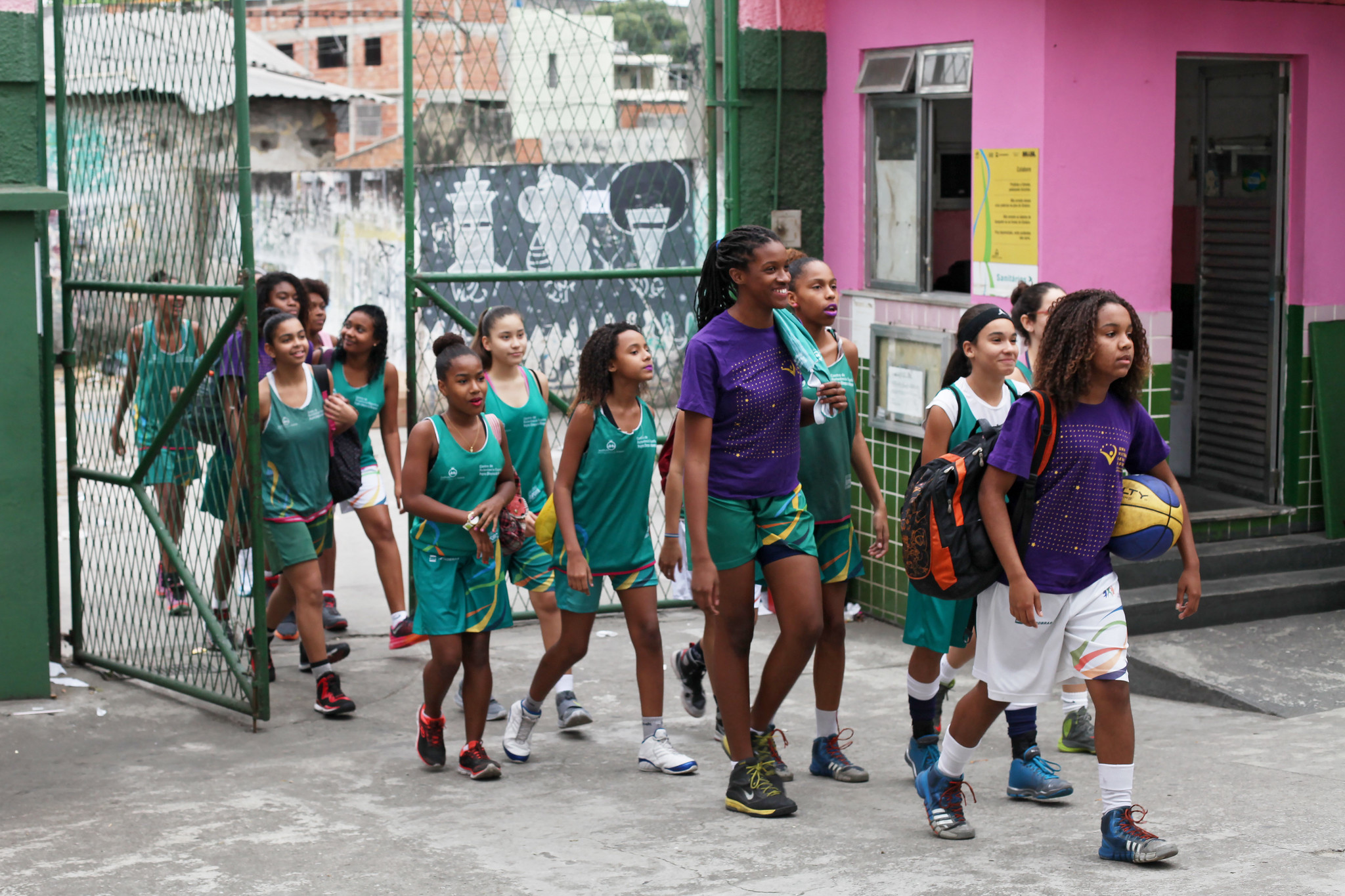Marcella Winter, an advisee of Professor Regina Cortina, is a third year doctoral fellow from Brazil and co-founder of the Paulo Freire Initiative at Columbia University. Chris Henderson asked Marcella about her contributions to "Decolonial Theories in Comparative Education" and the importance of this award to her current work and future career.
1: Can you tell us a little bit about the topic you taught and why it's important to you?
Decolonization was not a concern in my academic or personal life. I first had the opportunity to study decolonial perspectives and authors when I got to Teachers College in 2019. It was like I was entering a new world! But I deeply understood that new world: it talked to me, my experiences, and aims to deconstruct all the narratives I took for granted during my life as the only explanation to what happens in the world and my country. And I think this is why decolonial perspectives are so important: to bring the awareness that, as Boaventura de Sousa Santos would say, another knowledge is possible. We have to go beyond mainstream forms of knowing not to discredit them but to create alternatives that meet the needs of different communities, populations, and individuals worldwide.
1: Você pode nos contar um pouco sobre o tema que você ensinou e por que ele é importante para você?
Recebi este prêmio por minhas contribuições na disciplina "Teorias Decoloniais em Educação Comparada", ministrada pela professora Regina Cortina, da qual sou assistente. A descolonização não era uma preocupação na minha vida acadêmica ou pessoal. Tive a oportunidade de estudar perspectivas e autores decoloniais pela primeira vez quando cheguei ao Teachers College em 2019. Era como se estivesse entrando em um novo mundo! Mas compreendi profundamente aquele novo mundo: ele falava comigo, com minhas experiências, e visava desconstruir todas as narrativas que eu tinha durante a minha vida como a única explicação para o que acontece no mundo e no meu país. E acho que é por isso que as perspectivas decoloniais são tão importantes: trazer a consciência de que, como diria Boaventura de Sousa Santos, outro conhecimento é possível. Temos que ir além das formas convencionais de conhecimento não para desacreditá-las, mas para criar alternativas que atendam às necessidades de diferentes comunidades, populações e indivíduos em todo o mundo.
2: What or who motivates or inspires your teaching approach?
I was fortunate to have had great teachers during my life. They were not only good instructors but also helped students develop critical thinking. And this is what is most important in the teaching approach I'm pursuing: to help students realize that there are different ways of approaching educational issues and that we should not take the existing solutions for granted. If something happens a certain way, it could happen otherwise. We can construct new practices, curricula, ways of seeing teaching and learning if we look at education differently. Students are another source of inspiration. I always believed that students have a lot to teach. Still, after learning more about what Paulo Freire proposed in his critical pedagogy, the idea that teachers and pupils construct knowledge in communion became central to my practice.
2: O que ou quem motiva ou inspira sua abordagem de ensino?
Tive a sorte de ter tido grandes professores durante a minha vida. Eles não eram apenas bons instrutores, mas também ajudavam os alunos a desenvolver o pensamento crítico. E é isso que é mais importante na abordagem de ensino que estou perseguindo: ajudar os alunos a perceberem que existem diferentes maneiras de abordar as questões educacionais e que não devemos tomar as soluções existentes como as únicas possíveis. Se algo acontece de uma certa maneira, pode acontecer de outra forma. Podemos construir novas práticas, currículos, formas de ver o ensino e a aprendizagem se olharmos a educação de forma diferente. Os alunos são outra fonte de inspiração. Sempre acreditei que os alunos têm muito a ensinar. Ainda assim, depois de saber mais sobre o que Paulo Freire propôs em sua pedagogia crítica, a ideia de que professores e alunos constroem conhecimentos em comunhão tornou-se central em minha prática.
3: What does this recognition mean to you personally? How -- if at all -- does it shape visions for future work in international and comparative education?
I was super happy to receive such recognition! It was great to notice that my peers recognized my work and that they could see all the effort I put into being the best teaching assistant I could be. The award also helped me confirm that teaching will be central in my future endeavors in international and comparative education. Hopefully, I will have the chance to construct, alongside students, new ways of seeing and creating schooling in Brazil and other parts of the world.
3: O que esse reconhecimento significa para você pessoalmente? Como – se for o caso – influencia o seu trabalho futuro em educação internacional e comparada?
Fiquei super feliz em receber o reconhecimento! Foi ótimo perceber que meus colegas reconheceram meu trabalho e que puderam ver todo o esforço que fiz para ser a melhor assistente de ensino que eu poderia ser. O prêmio também me ajudou a confirmar que ensinar será central em meus futuros projetos em educação internacional e comparada. Espero ter a chance de construir, ao lado dos alunos, novas formas de ver e criar práticas educacionais no Brasil e em outras partes do mundo.
Photo Credit: UNWOMEN (CC 2.0)
